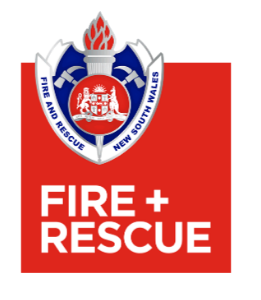This course is an accredited program for people who occupy the Fire Safety Officer position in Health Care, Correctional facilities and commercial premises . The course is specifically aimed at those appointed as Fire Safety Officers (FSO).

Course Overview
This course is an accredited program for people who occupy the Fire Safety Officer position in Health Care, Correctional facilities and commercial premises . The course is specifically aimed at those appointed as Fire Safety Officers (FSO).
This course will train participants in the requirements of Australian Standards AS 4083-2010 Planning for Emergencies – Health Care Facilities, AS 3745-2010 Planning for Emergencies in Facilities and meets the requirements of the NSW Health Policy Directive (PD2010_024) – Fire Safety in Health Care Facilities.
The training provides participants with the appropriate knowledge and skills to perform the duties and responsibilities of the Fire Safety Officer with confidence. It provides the competency required to undertake emergency planning, implement, and coordinate emergency response procedures, and be familiar with the operation of installed systems and building fire safety. Participants will be trained in their obligations under the Work Health and Safety Act 2011 and Regulations 2017.
This course is the prerequisite for those wanting to complete the Fire Safety Managers course.
Who Is This Course For?
This course has been designed for people employed in the position of Fire Safety Officer (or equivalent), working under Australian Standards AS3745-2010 Planning for Emergencies in Facilities, AS4083-1997 Planning for Emergencies – Health Care Facilities, and the NSW Health Policy Directive PD2010_024 Fire Safety in Health Care Facilities.
ENTRY REQUIREMENTS
Before a participant can attend this course they must complete a formal Language, Literacy and Numeracy (LLN) assessment. The LLN assessment ensures that all participants hold the appropriate LLN skills required to complete the training program.
Where a participant does not hold the appropriate skills, or requires additional support to meet their training goals, a ComSafe Trainer will reach out to the participant to discuss support strategies that can be put in place, or refer them to external support services if required.
Participants will not be able to attend the course if they have not completed this assessment process. ComSafe’s LLN assessment is conducted by The Learning Resources Group, using the ‘LLN Robot’ software, participants will be sent a link to the LLN assessment once the completed enrolment forms are returned. This assessment must be completed at least 7 days prior to the course commencement.
Pre-course Material
Once enrolled in this course students must complete a mandatory pre-course reading module online in our Student Portal. ComSafe recognises that every student is different and may prefer different ways to gain and absorb knowledge and develop skills.
This pre-course reading material has been developed to assist students to build their understanding of the underpinning knowledge required to successfully complete this course. The pre-course module contains reading, short videos, case studies and knowledge check quizzes. No formal assessment is conducted in this module.
Overview
Understanding the role and responsibilities of an FSO
Understanding legislation
Ensure workplace emergency prevention processes are implemented
Ensure appropriate hazard analysis is undertaken and workplace procedures are implemented
Developing risk management strategies
Emergency Planning Processes
Identify and operate fire safety installed systems and emergency control equipment
Respond to emergency reports, signals and warnings
Initiate, lead and control emergency response, anticipate for further developments
Coordinate post response activities, including debrief
Maintain records, reports and maintenance record for equipment
Provide advice and assistance to management to ensure that all employees participate in fire safety education and that records of education are maintained
Monitor day-to-day fire prevention, protection, and fire safety functions within the facility, together with regular utilisation of the Workplace Fire Safety Inspections
Conducting and Evaluating evacuation exercises and fire drills
Demonstrate knowledge and practical application of first attack firefighting equipment in small workplace emergencies
We educate the community to help prevent incidents from happening and prepare them for action when they do. We train to get it right. We’re ready. Ready for any emergency. Anytime. Every time.
© 2025 coursetakers.com All Rights Reserved. Terms and Conditions of use | Privacy Policy